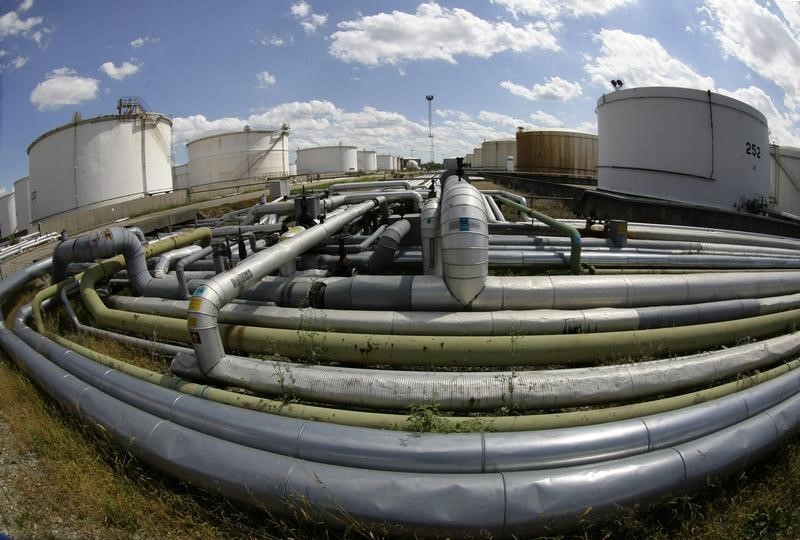By Gina Lee
Investing.com – Oil was up Friday morning in Asia but was set for weekly losses of nearly 2%. Investors digested China’s decision to release crude from its strategic reserve supply and warnings of declining ticket sales from some U.S. airlines.
Brent oil futures gained 0.59% to $71.87 by 11:50 PM ET (3:50 AM GMT) and WTI futures were up 0.50% to $68.48. Both Brent and WTI futures settled at their lowest levels since Aug. 26 on Thursday.
China's National Food and Strategic Reserves Administration said on Thursday it would release crude oil reserves to the market via public auction.
The release, reportedly the first of its kind, aims to ease the pressure of high feedstock costs on domestic refiners. It also comes as Chinese majors had to replace supplies purchased for September and October loadings from Royal Dutch Shell (LON:RDSa) Plc in the U.S.’ Gulf of Mexico, an analyst told Reuters.
Shell, the largest oil producer in the region, was forced to cancel some export cargoes as the recovery from Hurricane Ida remains slow. Almost 1.4 million barrels per day (bpd) of the Gulf of Mexico’s offshore oil production remains shut and 1 million bpd of refining capacity also remains offline.
"It wasn't good news on the demand front either, with U.S. airlines warning of slowing demand," ANZ Research analysts said in a note.
The airlines included American Airlines (NASDAQ:AAL), United Airlines Holdings Inc. (NASDAQ:UAL), Delta Airlines Inc. (NYSE:DAL), Southwest Airlines (NYSE:LUV) and JetBlue Airways (NASDAQ:JBLU). All five companies reported slowing ticket sales and cut revenue forecasts as COVID-19 remains a threat to the travel industry’s recovery.
Meanwhile, Thursday’s U.S. crude oil supply data from the U.S. Energy Information Administration showed a draw of 1.529 million barrels. Forecasts prepared by Investing.com had predicted a 4.612-million-barrel draw, while a 7.169-million-barrel draw was recorded during the previous week.
Crude oil supply data from the American Petroleum Institute the day before showed a draw of 2.882 million barrels.
